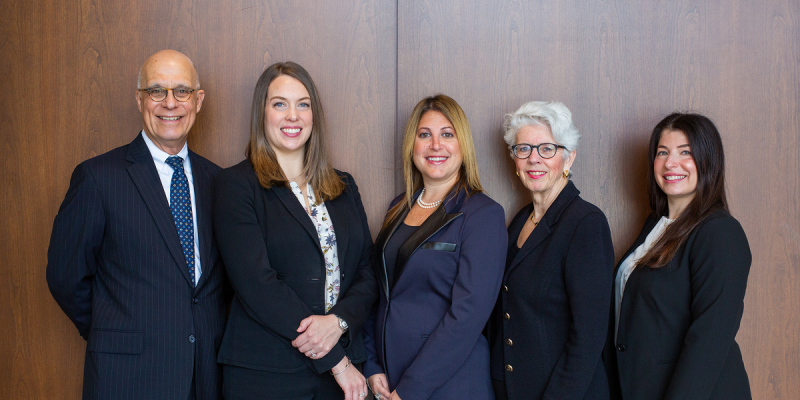The Return of Parenting Coordination in Pennsylvania

Parenting Coordination is a process whereby a neutral third party is appointed to help resolve discrete issues between parties in a custody case. It has been utilized in cases where parents (or other custodial caregivers) have frequent disagreements about non-emergency issues that repeatedly end up before the court. If the parenting coordinator is unable to help the parties reach an agreement, then he or she is given the authority to make a decision about how the disagreement should be resolved, thus decreasing the need for parties to litigate minor custody disputes in court. The benefits to parenting coordination include speed and cost: a parenting coordinator is able to make a decision much quicker than it would take to go through the court system, and it ends up costing the parties less than if they each had to pay an attorney to represent them in court. It also reduces the waste of judicial resources and allows the court to focus on larger, more pressing issues.
In 2013, however, the Pennsylvania Supreme Court eliminated parenting coordination altogether, immediately vacating all orders that had assigned or appointed parenting coordinators in custody cases. The main reason for the elimination was the concern that if parenting coordinators’ decisions were final, it would infringe upon the due process rights of the parties, since they would not get an opportunity to have their “day in court.” There were also issues with ambiguity and a lack of uniformity regarding how the process should work and how the “recommendations” should be enforced.
Because of the many benefits that family law practitioners and jurists saw, however, the Supreme Court recently issued a new rule that brings parenting coordination back to Pennsylvania. Effective March 1, 2019, Pennsylvania Rule of Civil Procedure 1915.11-1 provides for a parenting coordinator to be appointed by the court and sets forth who can be appointed in that role, how that appointment takes place, exactly what type of issues the parenting coordinator can consider, and how the dispute resolution process will work. The rule specifically states that a parenting coordinator should not be appointed in every case, but may be appointed by a judge after a final custody order has been entered, “to resolve parenting issues involving repeated or intractable conflict between the parties affecting implementation of the final custody order.”
To qualify as a parenting coordinator, an individual must be licensed to practice as either an attorney or a mental health professional with a master’s degree or higher, have five years of experience in their relative field, and have specialized training in the parenting coordination process, family mediation, and domestic violence.
A parenting coordinator cannot be appointed in cases where there is a Protection from Abuse Order in effect between the parties or there is a court finding that one of the parties perpetrated domestic violence or a personal injury crime against the other, unless the parties consent and there are appropriate safety measures in place. The appointment must be for a specific length of time, which should not exceed 12 months, but the appointment may be extended. Once appointed, the parenting coordinator is required to give the parties a written agreement regarding payments and how the process works. The parenting coordinator’s fees are to be allocated by the court when the appointment is made, but the parenting coordinator “may reallocate the fees, subject to the approval of the court, if one party has caused a disproportionate need for the services of the parenting coordinator.”
The authority of a parenting coordinator is limited to issues regarding the implementation of the custody order and related parenting issues, such as how and where custody exchanges take place, participation in extracurricular activities, childcare, and temporary variations from the court-ordered custody schedule to accommodate a special event of particular circumstances. Parenting coordinators are explicitly prohibited from changing who has legal or primary physical custody of the children, deciding whether a relocation of the child will be permitted, determining financial issues other than how the parenting coordinator’s fees will be allocated, or making major decisions affecting the health, education or religion of the children. Thus, all major decisions, including the overall award of custody, are reserved for the court.
During the parenting coordination process, the parties must copy each other on all written communication that is sent to the parenting coordinator, and the parenting coordinator must give both sides notice and an opportunity to be heard on the issues. If there is no agreement between the parties after communication with the parenting coordinator, then he or she must enter a written Summary and Recommendation of the Parenting Coordinator, which must be sent to the court to be reviewed within two days of hearing from the parties on the issues. If either party objects to the Summary and Recommendation, that party must file a petition with the court requesting a record hearing within five days of service of the Summary and Recommendation. If an objection is timely made, then the Summary and Recommendation becomes an interim order pending further disposition by the court. If no objection is made, then the court can either approve the recommendation (in part or in whole), remand the recommendation to the parenting coordinator for more specific information, or conduct a record hearing on the issues.
With this reinvention of parenting coordination in Pennsylvania, it is hoped that minor custody disputes will be resolved in a more efficient and cost-effective way. This will benefit not only the parents or custodial caregivers, but also the children whose lives are often put on hold while disputes are resolved.
Vetrano | Vetrano & Feinman Provides Experienced Guidance on Parenting Coordination and Other Child Custody Concerns
The family law attorneys at Vetrano | Vetrano & Feinman offer compassionate and skilled assistance to Main Line residents. Our lawyers are experienced in all areas of family law, including divorce, child custody, child support, and divorce modifications. To learn more about parenting coordination or to schedule a consultation, contact us at 610-265-4441.

Need to Talk to Us?
Our experienced family lawyers take the time to fully understand the financial and emotional complexities that can be involved in separating two lives. We offer the patience and resources to effectively guide clients through a divorce, addressing all the challenges they may face in moving forward with their lives. To learn more about how we can help protect your rights and interests in a complex divorce, contact the Pennsylvania divorce attorneys at Vetrano | Vetrano & Feinman LLC.